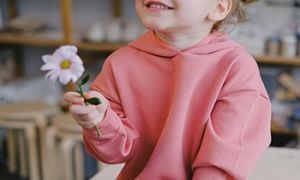

Quality Area 5 of the National Quality Standard focuses on educators developing responsive, warm, trusting and respectful relationships with children that promote their wellbeing, self-esteem, sense of security and belonging. Relationships of this kind encourage children to explore the environment and engage in play and learning.
Quality Area 4 of the National Quality Standard focuses on the provision of qualified and experienced educators who develop warm, respectful relationships with children, create predictable environments and encourage children’s active engagement in the learning program. A collaborative and ethical culture where professional standards guide all aspects of practice is critical to a quality service.
From today 01, Feb 2018 the new National Quality Standards will come into effect and all early childhood services will be assessed and rated against the new NQS.
Quality Area 2 of the National Quality Standard reinforces children’s right to experience quality education and care in an environment that provides for their health and safety.
Quality Area 1 of the National Quality Standard focuses on ensuring that the educational program and practice of educators are child-centred, stimulating and maximising opportunities for enhancing and extending each child’s learning and development. The following is a list of outcomes under each element within QA1, that can help services identify if they are achieving Quality Area 1. It also includes documentation to support each element. This list can be used as a guide for Self-Assessment purposes and the development of the Quality Improvement Plan.
Knowledge, Skills and Dispositions describe how children explore during the Kindergarten Year within a holistic learning program.
The Queensland Kindergarten Learning Guidelines support kindergarten teachers’ professional practice across Queensland.
The National Quality Standard (NQS) sets a national benchmark for the quality of education and care services and includes seven quality areas that are important to outcomes for children.
In each quality area, there are two or three standards. These standards are high-level outcome statements. Under each standard are elements that describe the outcomes that contribute to the standard being achieved. Each standard and element is represented by concepts that support education and care services to navigate and reflect on the NQS.
 As an Educator in Australia, your pay rate falls under the Children’s Services Award 2010. This award states the minimum amount that an employer can… Read More
As an Educator in Australia, your pay rate falls under the Children’s Services Award 2010. This award states the minimum amount that an employer can… Read More
 When working as a qualified Early Childhood Teacher (with a university degree) within a service, your rate of pay will come from the Educational Services… Read More
When working as a qualified Early Childhood Teacher (with a university degree) within a service, your rate of pay will come from the Educational Services… Read More
 When working as a Diploma Qualified Educator your pay rate is from the Children's Services Award 2010. This Award states your minimum rate of pay… Read More
When working as a Diploma Qualified Educator your pay rate is from the Children's Services Award 2010. This Award states your minimum rate of pay… Read More
 When working as a Cert 3 Qualified Educator, your pay rate is from the Children's Services Award 2010. This Award states your minimum rate of… Read More
When working as a Cert 3 Qualified Educator, your pay rate is from the Children's Services Award 2010. This Award states your minimum rate of… Read More
 Educational Leaders play a crucial role in their early childhood service by ensuring that the educational program aligns with best practices and supports the holistic… Read More
Educational Leaders play a crucial role in their early childhood service by ensuring that the educational program aligns with best practices and supports the holistic… Read More
 In early childhood education and care, ratios are more than a technicality—they are a frontline safeguard. Every child deserves responsive supervision, emotional connection, and developmental… Read More
In early childhood education and care, ratios are more than a technicality—they are a frontline safeguard. Every child deserves responsive supervision, emotional connection, and developmental… Read More
 Here’s a comprehensive Mobile Phone and Smart Watch Policy tailored for early childhood education and care (ECEC) services in Australia, aligned with the latest 2025… Read More
Here’s a comprehensive Mobile Phone and Smart Watch Policy tailored for early childhood education and care (ECEC) services in Australia, aligned with the latest 2025… Read More
 With the new national child safety reforms kicking in on 1 September 2025, early childhood services like yours have a real opportunity to lead the… Read More
With the new national child safety reforms kicking in on 1 September 2025, early childhood services like yours have a real opportunity to lead the… Read More
 The Sea of Fish Challenge is a national initiative that invites children, educators, families, and communities to create and display fish artworks as a symbol… Read More
The Sea of Fish Challenge is a national initiative that invites children, educators, families, and communities to create and display fish artworks as a symbol… Read More
 Across the early childhood education and care sector, educators are sounding the alarm: current staffing ratios are insufficient to deliver safe, meaningful, and developmentally appropriate… Read More
Across the early childhood education and care sector, educators are sounding the alarm: current staffing ratios are insufficient to deliver safe, meaningful, and developmentally appropriate… Read More

There are so many wonderful ways to help children connect with nature and understand its...
See more...
Auslan is the sign language of the Australian Deaf community. The following article provides a...
See more...
The Australian Council for Educational Research (ACER), has developed a set of free resources that...
See more...© 2009-2025 Aussie Childcare Network Pty Ltd. All Rights Reserved.

